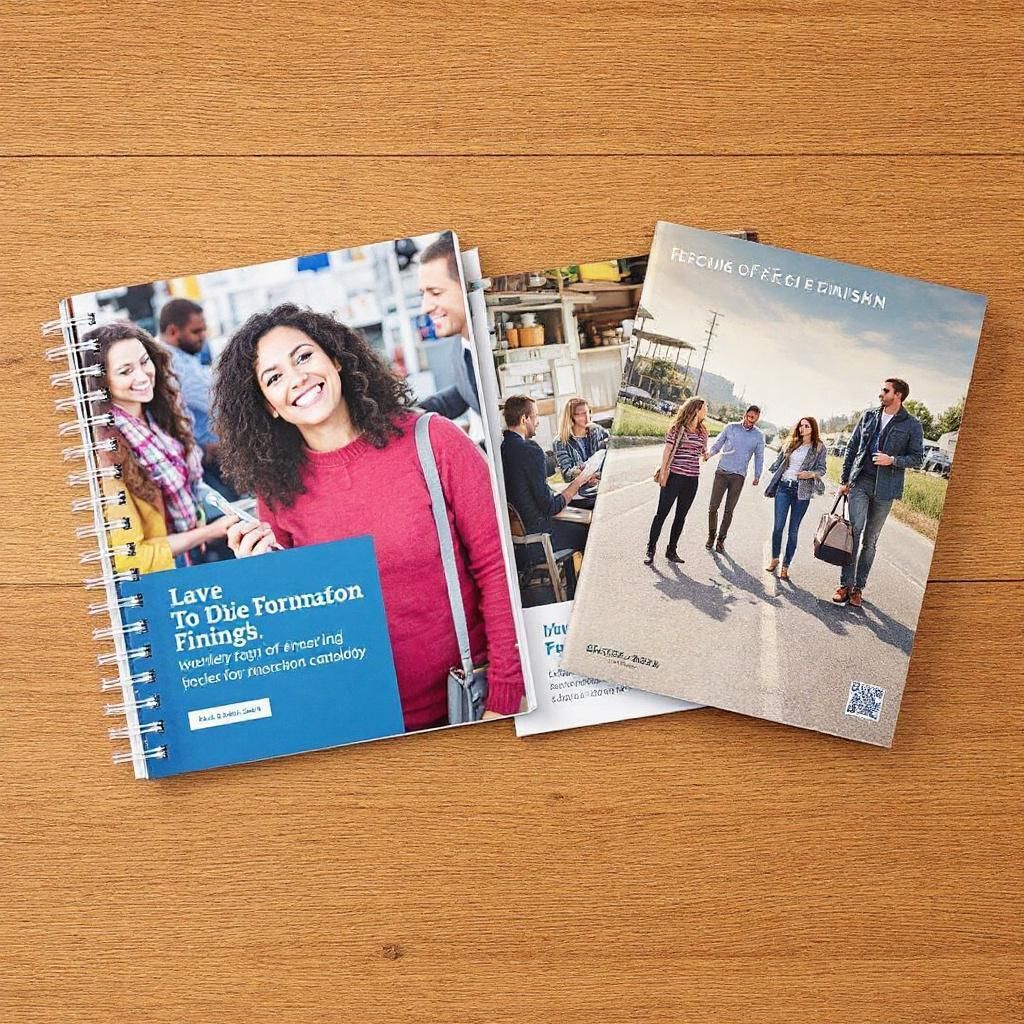
When you’re printing course materials, reports, or manuals, the binding method you choose affects both durability and presentation. The right binding keeps your pages organized, easy to handle, and professional in appearance.
At Minuteman Press Boca Raton, we help educators and schools select the ideal binding for their printed documents. Here’s a complete look at the most common binding types, how they differ, and when to use each one.
1. What Binding Options Are Available?
Binding is the process that holds pages together after printing. Each method creates a different look and level of durability. Educators often choose between saddle-stitch, coil, perfect, and Wire-O binding depending on page count, purpose, and budget.
Common uses include:
Student workbooks and classroom manuals
Program booklets for events or performances
Training guides and annual reports
Tip: Before printing, confirm final page count and paper thickness. These two details determine which binding types are possible.
2. Saddle-Stitch Binding: Simple and Affordable
Best for: Booklets, programs, newsletters, and short guides
Saddle-stitch binding folds pages in half and staples them along the spine. It’s cost-effective and perfect for projects up to about 64 pages.
Advantages
Budget-friendly for small print runs
Opens flat for easy reading and note-taking
Lightweight for distribution or mailing
Paper & Cover Tips
Use standard text-weight paper with a slightly heavier cover. Avoid very thick paper—too many sheets may cause the spine to spring open.
3. Coil (Spiral) Binding: Durable and Flexible
Best for: Workbooks, training guides, and frequently used materials
Coil binding threads a plastic or metal spiral through holes punched along the edge of your pages. It allows full 360-degree rotation and lays completely flat.
Advantages
Pages turn smoothly and stay flat
Durable for everyday classroom use
Available in many colors to match school branding
Coil vs. Wire Binding
Coil binding is more flexible and resists bending. Wire-O binding gives a tighter, more professional look but is less forgiving if crushed.
4. Perfect Binding: A Professional, Book-Like Finish
Best for: Annual reports, magazines, catalogs, or multi-chapter course books
Perfect binding glues the pages and cover along a squared spine, creating a sleek, polished appearance similar to a paperback book.
Advantages
Holds hundreds of pages securely
Clean, flat spine that can display titles
Excellent for presentations and long-term materials
When to Choose Perfect Binding
Select this option when visual presentation matters most or when your booklet exceeds the page limit for saddle-stitch binding.
5. Wire-O Binding: Elegant and Polished
Best for: Portfolios, planners, and executive presentations
Wire-O binding uses a double-loop metal wire that provides a crisp, professional look. It lays completely flat and offers precise page alignment.
Advantages
High-end appearance for reports and proposals
Strong, durable spine
Allows 360-degree page rotation
6. Choosing the Right Binding for Your Project
Here’s a quick comparison to help you decide:
Saddle-Stitch Binding
Use this option for booklets between 8 and 64 pages. It’s affordable, lightweight, and ideal for programs, event guides, and short reports.
Coil or Spiral Binding
Choose coil binding for documents between 20 and 250 pages. It’s durable and flexible, making it perfect for workbooks, manuals, and classroom materials that get regular use.
Wire-O Binding
Wire binding fits similar page counts to coil binding but offers a more polished look. It’s a smart choice for presentations, planners, and portfolios where appearance matters as much as function.
Perfect Binding
Best for documents between 60 and 400 pages. It provides a professional, book-like finish for reports, catalogs, and annual publications that need to make a strong impression.
Questions to Ask Before Printing
How often will the document be handled?
Should it lie flat or display on a shelf?
What’s your desired balance between cost and appearance?
Pro Tip: Bring your file to Minuteman Press Boca Raton and our print experts will suggest the best binding based on your document’s thickness and intended use.
7. Local Printing and Binding in Boca Raton
Working with a local printer saves time and ensures consistent quality. At Minuteman Press Boca Raton, we handle printing, finishing, and binding in-house for schools, universities, and training centers.
Why Educators Choose Us
Quick turnaround for semester projects
Durable binding built for daily classroom use
Local pickup or campus delivery options
File archiving for easy reorders
Case Example
Last semester, a Boca Raton high school needed 200 student planners printed and coil-bound within three days. Our team produced, bound, and delivered them on schedule—proof of how local service keeps education moving smoothly.
8. Caring for and Reordering Bound Materials
Store booklets flat or upright to protect spines.
Avoid stacking heavy objects on top of spiral or wire-bound items.
For updates, simply send your revised file—we keep previous versions on record for quick reprints.
Minuteman Press Boca Raton makes reordering simple. Call 561-392-8626 or visit mmpboca.com to request a quote or reorder existing materials.
9. Frequently Asked Questions
How long does binding take?
Most projects are completed within two to three business days.
Can I print and bind my own PDFs?
Yes. Email or upload your file and we’ll handle the rest, including finishing and trimming.
What if I need more copies later?
We store your project files for quick, repeat orders.
Conclusion
Your documents represent your work, your classroom, and your school’s professionalism. Choosing the right binding method ensures they look great and last.
At Minuteman Press Boca Raton, we help educators create durable, polished materials from start to finish. Visit our shop or request a quote online to bring your next project to life.
